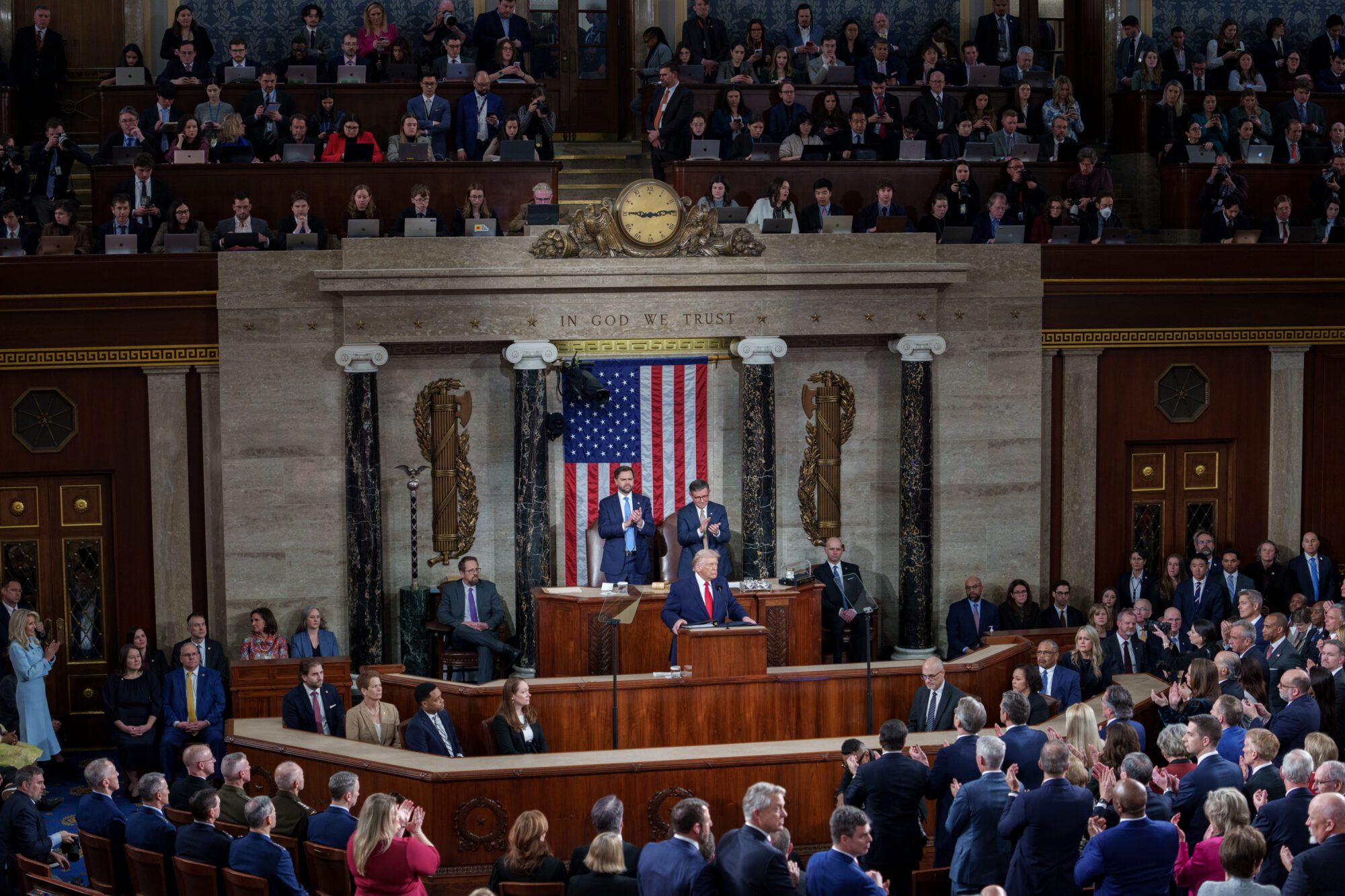
Senate Judiciary A Committee Chairman Brice Wiggins, R-Pascagoula, waves a letter asking for help to combat crime in Jackson, Miss., during his call for support for the controversial Jackson Capitol Complex Improvement District bill, Thursday, March 30, 2023, at the Capitol in Jackson, Miss. (AP Photo/Rogelio V. Solis - Copyright 2023 The Associated Press. All rights reserved.)
- The Senate has acted on its proposal twice, once during the 2024 session and this year. However, it was not taken up by the House last year. Now, the House has its own plan.
State Senator Brice Wiggins (R), chairman of Senate Judiciary A Committee, sought to be ahead of the deadline on judicial redistricting during the 2024 session but as he told his colleagues last week, the House did not take up the legislation that passed in the Senate last year.
“Under Mississippi law, under the constitution and the statute, we, meaning the Legislature, has to redistrict by the fifth year [following the Census], Wiggins said.
READ MORE: Judicial redistricting fails this session, will be back up for consideration in 2025
Now with SB 2768, Wiggins is back in that fifth year with the same proposal filed a year ago.
If legislators do not act, the responsibility of redistricting will shift to the Mississippi Supreme Court.
“If we do not pass a bill [to redistrict], then it falls to the Supreme Court and the Chief Justice to redistrict,” Wiggins told the Senate.
His proposal adjusts the Circuit and Chancery Court Districts based on factors such as population shifts, caseload, and geographic boundaries.
Currently in Mississippi, there are 23 Circuit Courts and 57 judges in those courts, and 20 Chancery Courts and 52 judges.
The Senate proposal, which passed the chamber by a vote of 38 to 12, would decrease the number of Circuit judges by one to 56 while increasing Chancery judges by three to 55.
You can view the current versus proposed Senate judicial maps below.
Over in the House, HB 1544 passed the chamber by a vote of 83 to 35. Their proposal was presented by State Rep. Kevin Horan (R), chair of the House Judiciary B Committee.
While Democrats in both chambers largely opposed the Republican-led plans, the Minority in the House grilled Horan on the floor for nearly two hours. Their frustration, which was summed up by State Rep. Bryant Clark (D) when speaking on the bill prior to its passage, centered on access to the courts by black Mississippians and those in the Delta.
“I think we’re playing a dangerous game, where we didn’t have no hearings, very little participation from the Minority Party, very little participation from the members in this body to come out and make this drastic of a change on a framework of judicial districts that’s been in place for 30 years,” Clark said.
Horan noted the population shifts out of the Delta, with districts being collapsed together, while saying the legislation does create additional majority black subdistricts in other parts of the state.
“I can’t change the numbers, ladies and gentlemen. The numbers are what they are,” Horan said.
Clark advocated for leaving the districts the same as they are currently as “chances are we definitely would not have violated any federal law or federal guidelines that we’re required to follow.”
Rep. Horan closed by asking the body to support the legislation, reminding members that if they do not act, the Supreme Court would take it up.
“If we don’t do it, the constitution says the Supreme Court takes care of it,” Horan said. “We need to control this particular piece of legislation, and we need to control our circuit and chancery courts in this body.”
You can view the current versus proposed House judicial maps below.
The two chambers have now swapped the proposals and the judiciary committees in each chamber will be considering the measures. It is expected that both chambers will invite conference and seek to hash out their differences before the end of the session.









